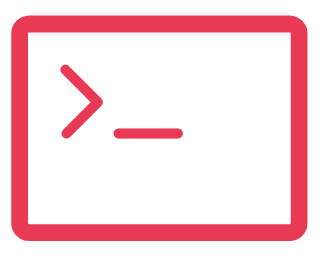introduction
In today’s data-driven landscape, strict regulations govern the storage and processing of sensitive information across various industries. Salesforce, a widely adopted platform, is no exception. This guide explores the importance of data encryption in adhering to data protection laws and outlines the encryption tools available in Salesforce to meet regulatory requirements.
Common Data Types and Applicable Regulations
Financial Data
NYCRR 500 Cybersecurity
PCI DSS
GLBA
Health Data
HIPAA
Personal Data Online
GDPR
CCPA
PIPEDA
Encryption Tools in Salesforce
Salesforce offers several tools to encrypt data, ensuring the secure storage and processing of sensitive information:
Encrypted Text Fields (Classic Encryption)
Cost-effective method available out of the box.
Protects custom text fields with AES 128-bit keys.
Suitable for storing sensitive data like credit card information.
Salesforce Shield
Comprises Event Monitoring, Field Audit Trail, and Shield Platform Encryption.
Event Monitoring: Tracks data access, user interactions, and network details.
Field Audit Trail: Extends tracking to 10 years, tracking changes in up to 60 fields per object.
Shield Platform Encryption: Encrypts data on the database level, allowing controlled access with relevant permissions.
Protecting Data in Apex (Salesforce's Programming Language)
Apex provides a proprietary object-oriented programming language.
Apex Encryption (Crypto Class): Allows custom cryptographic functions and supports AES128, AES192, AES256 encryption algorithms.
Applicability to Salesforce Data Security Regulations
| Regulation | Requirements | Encryption Tool Fit | ||
|---|---|---|---|---|
| Encrypted Text Fields | Salesforce Shield | Protecting data in Apex | ||
| NYCRR 500 | NIST-compliant, 256-bit Advanced Encryption Standard (AES encryption) (up to 128 bit) | ✔ | ✔ | ✖ |
| Store encryption keys apart from the encrypted financial data in a security device specifically designed for this task | help1 | ✔ | ✔ | |
| The Key Management Interoperability Protocol (KMIP) | ✔ | ✔ | ✔ | |
| PCI DSS | AES encryption (128 bit and higher) | ✔ | ✔ | ✔ |
| PGP implemented | ✔ | ✔ | ✔ | |
| Keep encryption keys and data separate | help1 | ✔ | ✔ | |
| HIPAA | End-to-end encryption (E2EE) | ✔ | ✔ | ✔ |
| AES encryption (128 bit and higher) | ✔ | ✔ | ✔ | |
| OpenPGP implemented | ✔ | ✔ | ✔ | |
| S/MIME implemented | ✔ | ✔ | ✔ | |
| GDPR | End-to-end encryption (E2EE) | ✔ | ✔ | ✔ |
| AES encryption (128 bit and higher) | ✔ | ✔ | ✔ | |
| CCPA | End-to-end encryption (E2EE) | ✔ | ✔ | ✔ |
| AES encryption (128 bit and higher) | ✔ | ✔ | ✔ |
Salesforce Implementation Examples
Encrypted Text Fields (Classic Encryption)
Allows the creation of custom encrypted text fields.
Supports masking options for sensitive information.
Salesforce Shield
Event Monitoring: Tracks user interactions, data access, and network details.
Field Audit Trail: Extends data tracking capabilities.
Protecting Data in Apex (Crypto Class)
Apex Encryption: Offers flexibility for custom cryptographic functions.
Supports AES128, AES192, AES256 encryption algorithms.
Conclusion
Salesforce, trusted by industry leaders, ensures data security and compliance across diverse sectors. By leveraging encryption tools like encrypted text fields, Salesforce Shield, and Apex Encryption, businesses can protect sensitive information and meet the stringent requirements of data protection regulations.
For inquiries on optimizing your data security with Salesforce and tailored encryption solutions, please contact us. Your data integrity and regulatory compliance are our top priorities.
